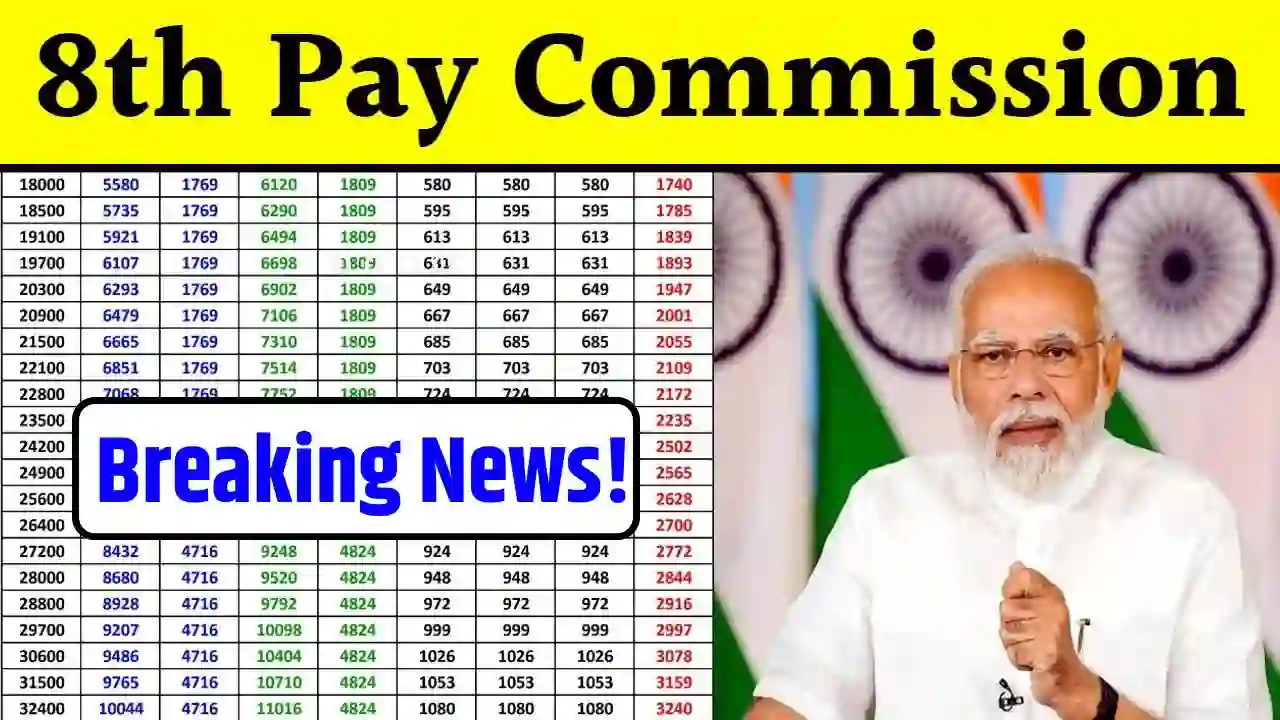There are indications that the central government is to launched the Eighth Pay Commission early this year which would come as a major booster to the government employees and pensioners. The government is under pressure to provide its workforce after the party failed to get the same number of seats in the Lok Sabha elections as before. In return, people have started talking about the Eighth Pay Commission.
Pay Commission: Historical Development In India
In India the new pay commission is normally implemented every ten years. Union government employees are now pressing for the Eighth Pay Commission which was not even considered after the implementation of the Seventh Pay Commission early in January 2016.
When the seventh commission was appointed, the government had indicated that maybe subsequent commissions would not be required. But fluctuations in the economic scenario and other emerging expectations from the employee front have forced the government to think again.
Anticipated changes in fitment factor and salaries
In the Seventh Pay Commission, employees demanded a fitment factor of 3.68, while the government fixed it at 2.57. The fitment factor defines the employee’s remuneration or compensation and pension structure.
The implementation of the Seventh Pay Commission led to an up-skilling of boosted the beginning minimum basic pay to ₹ 18,000 from ₹7,000 earlier. For the Eighth Pay Commission for which employees have demanded a fitment factor of 3.68, the salaries and pensions in Government establishments may increase by at least 30 percent.
Political Pressure and the Demand for a New Pay Commission
Civil servants and pensioners have further upped pressure on the Centre for restoring the OPS and the Eighth Pay Commission. Popularizes such as “No OPS, No Vote” are among their major concerns, which has made the government weighed for the implementation of Universal Pension Scheme (UPS). Likewise, pressure for the Eighth Pay Commission has built up making government sit up to this challenge.
Future Elections and Thus the Politics
In the forthcoming months, Assembly polls are gearing up in Haryana and Jammu & Kashmir and Maharashtra, Jharkhand and Delhi will follow. In the previous Lok Sabha election, the government has failed to win as many seats as predicted and after that, Prime Minister Narendra Modi and his team have started understanding the emotions of the employees and pensioners. If these demands were to be ignored then it would have political ramifications and therefore the Eighth Pay Commission became an election issue.
Recommendation of the Eighth Pay Commission That Could be Made
Workers are claiming that the fitment factor should be 3.68 which could increase the minimum wages to ₹26000. Their there also slogans that one should try for raising minimum pension from ₹9000 to ₹13000.
Schedule of the Eighth Pay Commission
The unique number 8 pay commission if formed we may take one year for it to make its recommendations and assuming the new structure will be implemented early enough the structure will be implemented by 2026. The exact timing has not been set, but central employees and pensioners are optimistic that they shall get a decision on and at the meeting of the scheduled for 25th September.




